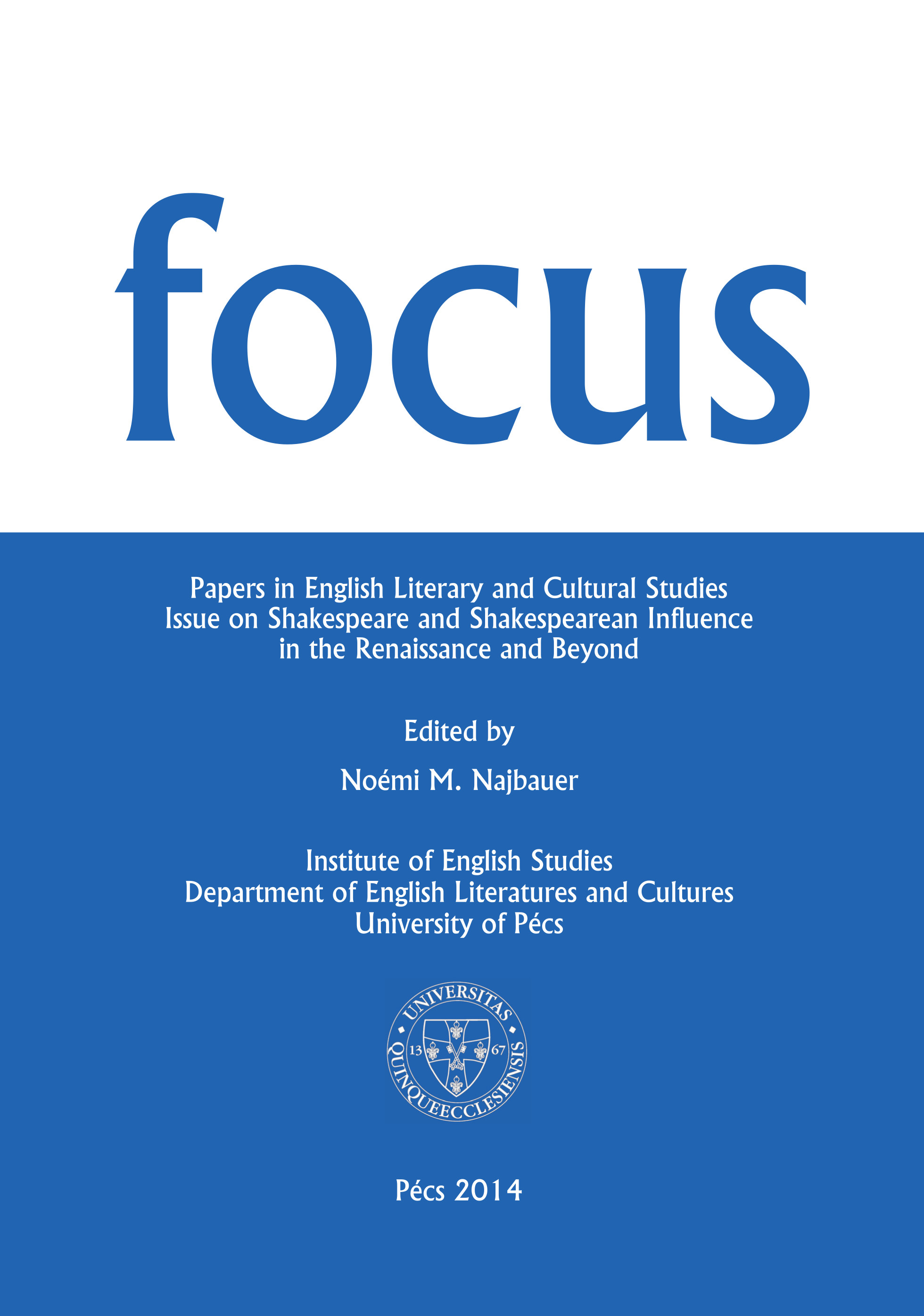“No more brain than a stone”: Hints of Extempore Performance in Shakespeare’s Plays
Keywords:
Shakespeare, improvisation, theatre, Judith ButlerAbstract
Recently, it has become a critical commonplace that theatre and society as well as cultural processes can be analyzed in terms of each other. Social sciences use the metaphors of theatre and drama to describe spectacular social events such as rituals, festivals or games—see, for instance, the works of Erving Goff mann, Victor Turner, Dwight Conquerwood, and Milton Singer. Human behaviour and habits are also frequently defined as performance; the best-known example is probably Judith Butler’s concept of gender performative.1 Very different, however, is the manner in which these approaches treat the relation between power/rules/hegemony and the freedom of the agent who performs. Nonetheless, it is very characteristic that while certain social theories use the metaphors of theatre and performance, others insist that human acts can better be described as improvisation.
Downloads
Published
How to Cite
Issue
Section
License
Copyright (c) 2024 FOCUS: Papers in English Literary and Cultural Studies

This work is licensed under a Creative Commons Attribution-NonCommercial-NoDerivatives 4.0 International License.
FOCUS: Papers in English Literary and Cultural Studies follows the principles laid down by Creative Commons, which provides guarantees for the Author’s copyright while also ensuring that intellectual properties are made available for the wider public in a digital form. All papers submitted to the journal apply the following licence conditions (indicated on the journal’s website as well as in individual publications):
“© This work is licensed under a Creative Commons Attribution-NonCommercial-NoDerivatives 4.0 International License.”
You are free to:
- Share, copy and redistribute the material included in the journal in any medium or format under the following terms:
- Attribution — You must give appropriate credit to the Author, and indicate the original place of publication [FOCUS: Papers in English Literary and Cultural Studies, Issue nr., page numbers.].
- NonCommercial — You may not use the material for commercial purposes.
- NoDerivatives — You are not allowed to remix, transform, or build upon the material.
- The above conditions must always be indicated if the journal material is distributed in any form.
- The above conditions must always be met, unless a written permission signed by the Author and the Editor-in-Chief states otherwise.

